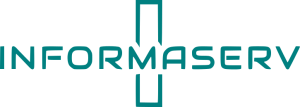Glossary: International Teaching Terms
Educators around the world use a variety of phrases and acronyms. Add yours to this glossary.

Special | A | B | C | D | E | F | G | H | I | J | K | L | M | N | O | P | Q | R | S | T | U | V | W | X | Y | Z | ALL
E |
|---|
e ilpelectronic individual learning plan. A centrally held electronic learning plan for students where all those involved can add input and students can review their learning. | |
e-AssessmentIn its broadest sense, e-assessment is the use of information technology for any assessment-related activity. | |
e-bookany text book or novel that is available in a digital format and can be read electronically on a computer, Kindle, or any mobile device such as an iPad or Android tablet. | |
E-learningLearning done by internet. | |
e-portfolioAn electronic portfolio, also known as an e-portfolio or digital portfolio, is a collection of electronic evidence assembled and managed by a user, usually on the Web. Such electronic evidence may include inputted text, electronic files, images, multimedia, blog entries, and hyperlinks. ... | ||
E-SafetyYour school should have a comprehensive e-safety policy which outlines how you will keep all members of your school’s community safe when using online websites and resources and todays technology. Simply blocking and filtering internet access will not keep you safe. Knowing what to do when encountering something offensive or dangerous will keep you safe. There are plenty of resources available that can be used in school or you can put together your own scheme of work and resources that meet the government's guidelines. Here are some useful links that you can investigate further:
Digizen - http://www.digizen.org/ | ||
E.L.E.C.T.E.L.E.C.T. stands for Early Learning for Every Child Today. This is an Ontario Ministry document that outlines a framework standard to guide educators in early learning and childcare programs. | ||
E.P.AEncuesta de Población Activa, realizada por el Instituto Nacional de Estadística, en el que se recogen entre otros datos, el número de desempleados, división por tramos de edad, sexo, o sector económico al que pertenecen. | |
each one teach oneThis phrase summarizes the following "lifelong learning" ideas: 1) you learn best by teaching others, 2) once you've truly learned something you're able to teach it, 3) teaching and learning are self-sustaining activities in a perpetual cycle | |

